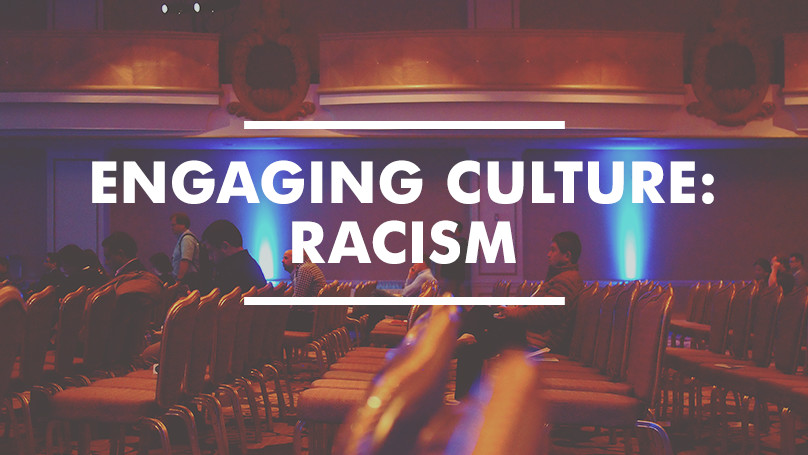The last year has seen a steady dose of media stories that focus on the issue of race. I’ve noticed that when it comes to issues of racism we’re selective in what we respond to and how. In the Sterling case last year, many of us were ready to ride when his comments dominated the airwaves on Saturday while the next day, only 5-7.5% of us worshipped our Lord in a setting that was multi-cultural. The remaining 92.5-95% of us worshipped in segregated services. In fact, I know by names, churches whose leadership and laity have echoed the very same sentiments as Sterling for decades yet notice few whistleblowers over such comments. Why are we so silent about our own segregation?
When we deal with issues of race in the church we’ve got to realize it’s not a black and white issue, its a WE issue!
I’ve been told before taking the stage at large conferences that I was the first person of color ever given the opportunity to exposit God’s Word in the general session and rather than being offended, I took it as a door open for minorities everywhere. In the same year, I was chastised by minority church folk and minority Christian leaders for choosing to teach at a conference (that had been planned for six months) rather than marching for justice for Travyon. Yet, when the clarion call was given to my challengers to come join us in comforting, mourning and weeping with families of the 120 murder victims in our own city that year, my co-laborers were no shows. The march for Trayvon drew thousands while the Longest Night event at Wornall Road Baptist Church drew less than one hundred (outside of the victims families). Interestingly enough, the majority of our murder victims and suspects, as with many American cities, were African-American and Latino. When we deal with issues of race in the church we’ve got to realize it’s not a black and white issue, its a WE issue!
Why Christians Are Responsible
So why did I choose to write a blog dealing with Saints instead of racism? Simple, we have the cure for racism and we refuse to share it and employ it. Racism along with sexism, and elitism are all nothing more than symptoms of a disease. The disease is sin. The only cure for sin is found in the message of the gospel, the finished work of Jesus Christ. The message of the gospel points all humanity towards the fact that we are one race (the human race) equally created by the same creator (God). Corporately our first father Adam, fell in the garden and universally every single person equally inherited a fallen nature. The effects of Adam’s disobedience have placed every sinner, from every nation, tribe and tongue in need of a Savior. The only qualified Savior is Jesus Christ (John 14:6). The gospel points us to the fact that only the blood of Christ cleanses our sins (Eph. 1:7) and that we who have embraced Christ are apart of a new ethnicity, the Church (Eph. 2:11-22). Christ alone tore down the walls of hostility that included race, socio-economic status and gender (Gal. 3:28) in order to save sinners from eternal separation from the God who created them.
The message of the gospel points all humanity towards the fact that we are one race (the human race) equally created by the same creator (God).
What hurts the case of the gospel is when the ethnic diversity God created becomes a cause for division instead of a celebration! The world is watching us and they see His bride is segregated in our worship services, classroom demographics and leadership positions. I’m convinced that every local church, higher Christian academic institution and Christian denomination is called to be a brochure of heaven that reflects the reality of our eternal state in heaven (Rev. 5:9 & 19:6-10).
The way we move from our status quo is to; proclaim the gospel and practice it’s implications by putting diversity on display. I’m not advocating putting minorities on stage to be “eye-candy” for the visiting minorities to see and identify with, rather, I’m talking about integrating credentialed and qualified minorities in decision-making leadership positions. When we do this, we’ll have more authority when speaking to the racist’s of our world. In addition to speaking, we’ll be able to point to local churches, seminaries and denominational gatherings across our land and say, this is what it looks like when the gospel cures racism. Until then, let’s sweep around our own front door before we act zealous in sweeping around another’s.
Published November 17, 2015
